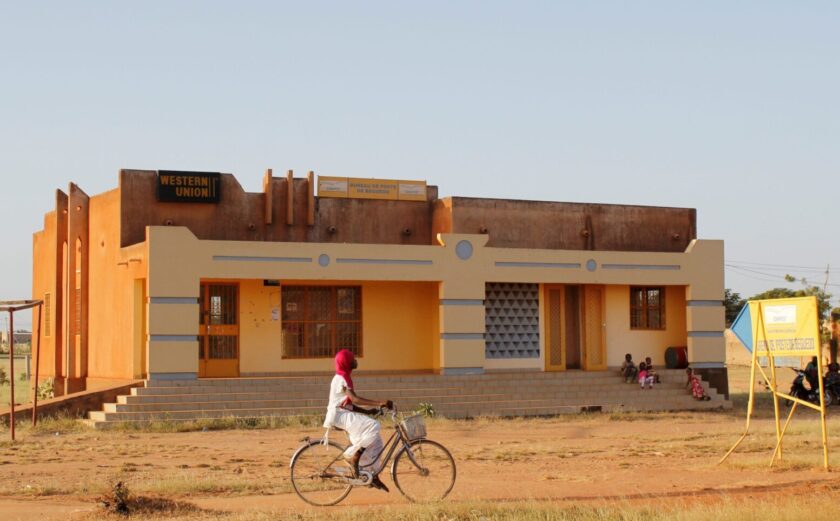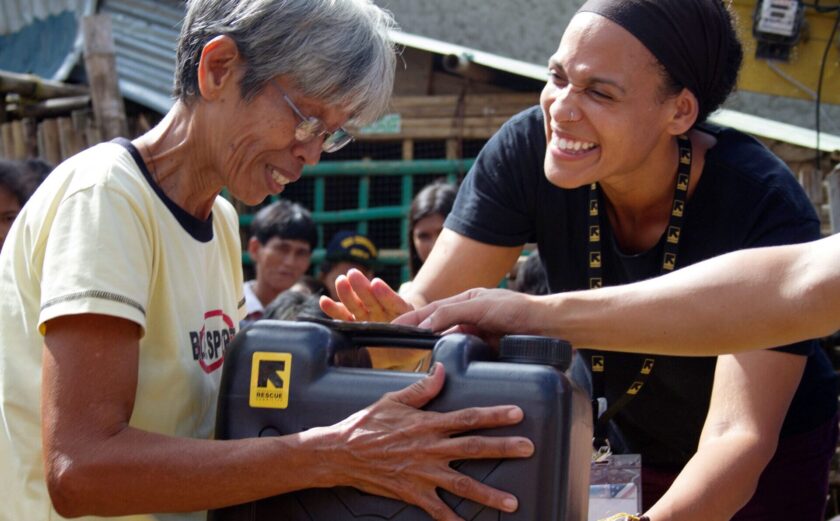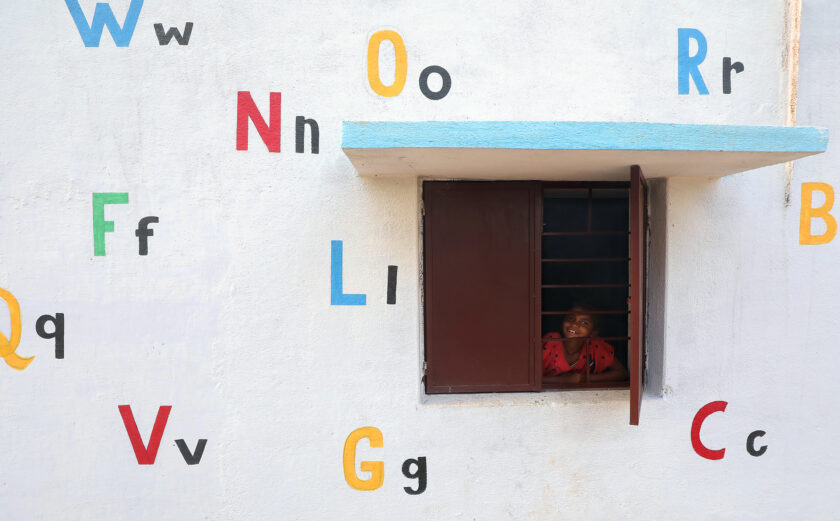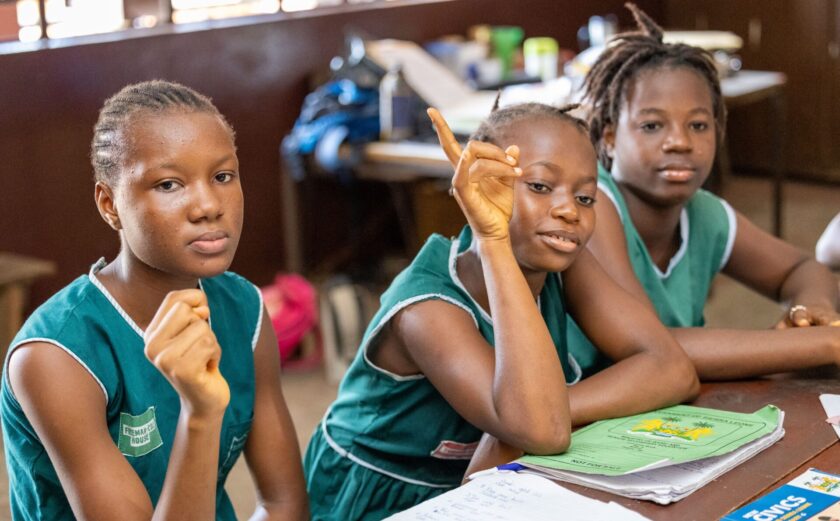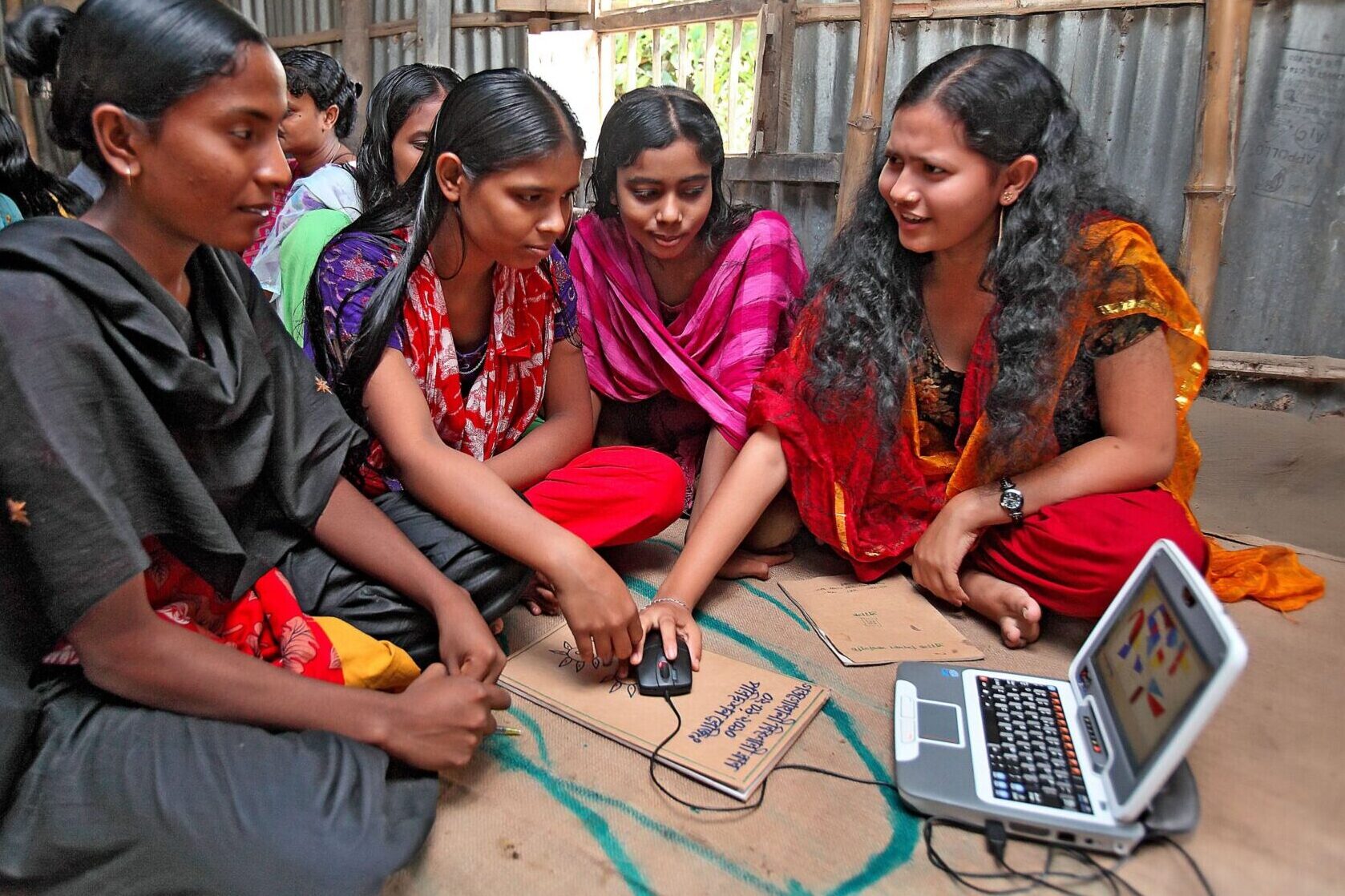
Closing the Global Digital Divide for Universal Gain
In 2022, only 36% of the population in the least developed countries (LDCs) was online, compared to 66% globally. The 720 million people offline in LDCs accounted for 27% of the world’s offline population, despite LDCs only accounting for 14% of the global population.
Although some gains have been made—internet use in Africa jumped by 23% between 2019 and 2021—the rapid economic growth and societal evolution spurred by information and communication technologies (ICTs) in wealthy countries poses a nearly insurmountable barrier to progress and development for LDCs without urgent and concerted action.
This barrier is commonly referred to as the “global digital divide” and describes the uneven distribution of ICTs worldwide, creating an inequality of access to information and other resources. However, the digital divide does not necessarily mean that people simply lack internet access due to infrastructure limits; there are also issues of affordability, digital proficiency, and digital literacy.
To foster conversation on bridging this digital divide, World Telecommunication and Information Society Day is celebrated yearly on May 17. The day attracts attention to the benefits of the internet and sheds light on where global internet connectivity continues to fall short.
The Current Landscape
To gain a more complete picture, here are some startling statistics:
- $4.5 trillion of economic value was added to the global economy by mobile technologies and services in 2021. That amounts to 5% of global GDP.
- 2.7 billion people, amounting to roughly one-third of the global population, remain unconnected to the internet.
- A basic mobile data plan costs 9% of total income for the average consumer in most low-income countries. This is many times greater than the cost as a percentage of total income in high-income countries.
- 90% of young women and girls in low-income countries are offline, with males nearly twice as likely to be online. The largest disparity is in South Asia, favoring young men and boys by 27 percentage points.
- 95% of the world’s population lives within range of a mobile broadband network.
Why The World Needs Internet Connectivity
The internet has quickly become the most defining invention of our generation. Its use is an essential aspect of our lives instead of a helpful benefit—and it will continue to trend in that direction. Digital technology is now used for banking, health care, education, news, and even identity. Its tools provide access to information that can boost agricultural productivity, enable energy conservation, and foster intercultural understanding, to name a few. The internet can also promote good governance, providing citizens information on polling stations, assisting governments in the provision of public goods, and sharing information on receiving government services to the public. If we are to improve social and economic conditions for everyone worldwide, then it is imperative that all populations have access to ICTs.
Benefits to the Global Community
Digital inclusion not only provides communities with the resources they need to combat climate change, reverse rising hunger, and reduce inequality, but also provides significant opportunities for public-private partnerships. Universal connectivity requires an influx of investment around the globe to bring internet access and affordability to rural populations. With mobile technologies and services adding almost $5 trillion to the global economy but only reaching two-thirds of the population, immense untapped growth remains. Opportunities to capitalize on unconnected communities and reduce economic barriers are plentiful.
In addition to the economic benefits, more connectivity means more knowledge can reach the global community, likely translating into increased cultural understanding and reduced tensions—when harnessed for good. Increased access can translate to more freedom of expression, civic participation, and opportunities for activism. A number of InterAction Members—including IREX, The Hunger Project, and Blumont—are already working toward these ends.
The Road Forward
There is no shortage of difficulties and negative externalities that arise from closing the global digital divide. The rise of artificial intelligence and chatbots, such as ChatGPT, has already muddied societal communication. Increased internet access and consumption during the pandemic caused a surge in reports of self-generated child sexual abuse content. And disinformation is increasingly being weaponized for political gain.
However, the alternative, where a small portion of the global population lags behind unable to access the economic and social benefits provided by ICTs, looks much grimmer. Although inequality has already reached astronomical proportions, the gap is likely to widen without a change of course. Not leaving disadvantaged populations behind due to lack of ICTs will be a global imperative for decades to come.
